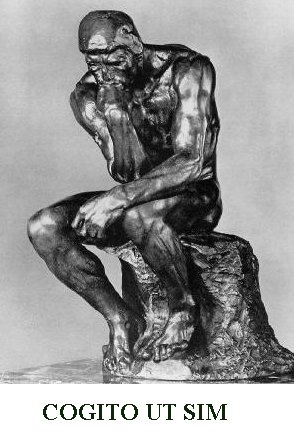

¶ 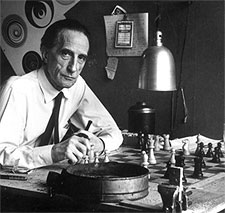 In conjunction with the Independants’ show (April 1917), (Duchamp) had arranged for a lecture by an old acquaintance from Paris, Arthur Cravan. . . .
In conjunction with the Independants’ show (April 1917), (Duchamp) had arranged for a lecture by an old acquaintance from Paris, Arthur Cravan. . . . 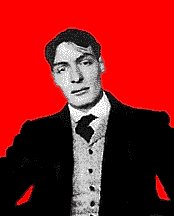 The self-styled nephew of Oscar Wilde now billed himself as “The World Champion at the Whorehouse.” Introduced by Duchamp as a Parisian authority on art, Cravan was soon asked to lecture on this subject before a select audience.
The self-styled nephew of Oscar Wilde now billed himself as “The World Champion at the Whorehouse.” Introduced by Duchamp as a Parisian authority on art, Cravan was soon asked to lecture on this subject before a select audience.
New York’s most prominent hostesses and their escorts crowded the Grand Central Gallery’s auditorium on the appointed evening, chattering and sipping cocktails as they awaited the lecture on modern art by the former editor of the Paris art magazine Maintenant. The buzzing grew louder as time passed and no lecturer appeared. Finally, after more than a hour’s wait, the audience quieted as the 6’8”, 240-pound Cravan appeared on the podium. As Man Ray recalled the scene, “He came in with a red valise, already dead drunk . . . He slams the valise down on the table, opens it up and starts throwing out all his dirty linen.” His lecture on modern art consisted of shouted obscenities, including “one of the most insulting epithets in the English language.” As he spoke Cravan began to strip off his clothes, tossing shirt, pants, socks indiscriminately into the elegant crowd. Before the end of the “lecture,” the police arrived to drag him off, in handcuffs, to the police station. Walter Arensberg, tolerant to the end, later bailed Cravan out and took him home, where a beaming Duchamp joined them, burbling, “What a wonderful lecture.” –Alice Goldfarb Marquis, Marcel Duchamp, 134-35.
recalled the scene, “He came in with a red valise, already dead drunk . . . He slams the valise down on the table, opens it up and starts throwing out all his dirty linen.” His lecture on modern art consisted of shouted obscenities, including “one of the most insulting epithets in the English language.” As he spoke Cravan began to strip off his clothes, tossing shirt, pants, socks indiscriminately into the elegant crowd. Before the end of the “lecture,” the police arrived to drag him off, in handcuffs, to the police station. Walter Arensberg, tolerant to the end, later bailed Cravan out and took him home, where a beaming Duchamp joined them, burbling, “What a wonderful lecture.” –Alice Goldfarb Marquis, Marcel Duchamp, 134-35.
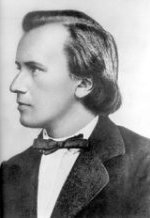
¶ Aber das Zischen war doch zu viel des Guten, oder? –Brahms, to his violinist friend Josef Joachim, 28 Jan. 1859, after premiering his D minor piano concerto in Leipzig. “Hissing” might be strong medicine for an ambitious young musician, but “really too much of a good thing, wasn't it?” When you play this forbidding monument now, or almost anything of a certain pretension, for that matter, they’ll stand on the seats and bellow bravos. What has changed?
¶ In one of his Norton lectures at Harvard, Lenny Bernstein claimed, with a gentle smirk, that there is “no bad music. Only badly performed music.” Hmm. He had already written plenty of bad music, and performed it with great enthusiasm.
¶
Song with Words
Souble blee
Souble blee
Hopnoc titswell
Carnal pee
No one drops it
Po len box hit
Sgreeedalomburghk
Carsen crocks it
Qualring gola
Nolma zumzba
Coolen locpot
Seemingly—
Souble blee
Souble blee
Hopnoc titswell
Carnal pee
|
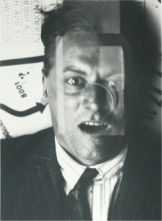
¶ You think that's bad? Maybe you didn't perform it so well. Try SUPERDADA: Kurt Schwitters doing his Ursonate
¶ 
¶ Quantum particles able to exist in more than one state at a time never did permit an absolute distinction between yes and no, as priesthoods and the law have made, always and everywhere. An eternal part of nature generous enough to contain multitudes without contradicting itself.
Anecdote intermission:scene: the clean, fast, roomy Heidelberg-Mannheim daily.
¶ Cars, a thinker reminds us, will be cars, whatever they burn, and work their evils as before. The devil's in the details. The hydrogen hype deceives deviously. For all the fuel cell's virtues, there’s no free hydrogen on earth, although the entire visible universe consists of almost nothing else. Let’s not rehearse all that. Instead I’ll use some ignorance, which exploited yields high office, power, free sex--alors, I don't know how to make it do that.
Of the four known elemental forces, we make some clanking use of the electromagnetic one, with continents of wires and pipes and heat exchangers. But as I understand it, there’s something fundamentally electrical about how atoms work. We need to tap that force directly, without first making it run a mechanical generator, as nuclear plants do. Photocells seem closer to the mark, going straight from photons to voltage. If
James Clerk Maxwell had known about them, maybe we’d be zipping around on sunbeams by now.
There's nothing new about this idea, you know:
Clearly the next step in power generation must be the elimination of the steam cycle and the direct conversion of radiation to electricity. –"50 years ago," Scientific American, Oct. 2006, 16. Yeah, we knew that fifty years ago.
The only news is that we're still nowhere near that step.
¶ While we're on the subject, let's remind ourselves that all, save one, of the "alternative" energy sources now being so enthusiastically promoted, tap solar radiation, however it has been or projected to be used or stored. So far, every novel method of capturing and saving that radiation requires industrial processes that burn lots of petroleum, turning loose bound carbon back into nature. Thermonuclear power, from essentially a galactic rather than solar origin, might get beyond this cycle, but its promoters should remember that we have right here at the center of our orbit an excellent nuclear fusion furnace that has already powered us up and kept us going thus far.
¶ Someone sat with this skull in their lap. -- "Stone Age Cutups," Science News 16 Apr 05, 244. We gotta do something about sentences like that. “S/he knew, with that skull in hir lap, that somebody would tell hem we need an epicene singular pronoun.” Oh, forget it.
¶ Lin’s presentation lay down a challenge. Scientific American, July 2005, 65. The mast, some boards, . . .stuck out of the cabin , and we lay them on the ground. New Yorker, 27 June 05. And these ain’t your local newspapers. We really should oughta do somthin, but what? How many high school teachers any more wouldna seen nuthin wrong there?
¶ The immortals live not in some recondite empyrean, but here, among us and of us, and we all know them, know who they are. Here are four of them I love, right now (the squiggle--maybe you don't know him-- is George Herriman):
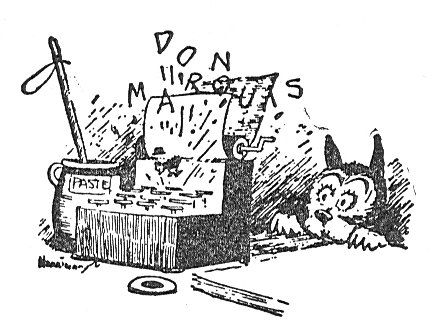
¶ Shopping list:
| ice cream NO FREAKIN NUTS (Devon) I LOVE ice cream with NUTS (Cindy) There are enough freakin NUTS in this family ALREADY (me) |
¶
"To believe too much, to believe too sincerely, is not conducive to the play of the imagination. Alas, even feeling too much is perhaps a mistake. Might one say that the best way to pluck this flower and this golden fruit is simply to separate them gently from their background?" (Sainte-Beuve, Port-Royal, Paris, 1842) Modern man cannot believe too steadfastly, but not because he does not wish to believe. Another firm devotion demands that he adhere to a certain falsity, just enough to give breathing room to the imagination, which otherwise would remain oppressed and nearly suffocated in a dense substance. All the Modern lies in that gentle separation from the background, in that tiny disjunction, in that imperceptible aperture that allows the void to circulate, in that unreal knife-edge that now separates every faith, every passion from itself. –Roberto Calasso, The Ruin of Kasch, tr. William Weaver and Stephen Sartarelli (Cambridge 1994), 115. Now shall we just leave at face value all those questionnaires that show 95% of us taking God and the Bible for plain reality?
¶  I spent my academic decline at a tech college that molted, as now even the lowliest hasten to do, to university. So we began sending someone from the useless abstractions to sit on doctoral orals in the harder knowledges. One afternoon I was supposed to help grill a candidate for Doctor of Philosophy in Chicken. After an hour or so of jovial shop talk on such as how you certify a trainload of chicken feed for quality (you sample it), I sensed growing tension as we circled up to the big question: why is chicken such an important food? The credo came not so much from the candidate as a kind of home-team cheer: you can make it taste like anything.
I spent my academic decline at a tech college that molted, as now even the lowliest hasten to do, to university. So we began sending someone from the useless abstractions to sit on doctoral orals in the harder knowledges. One afternoon I was supposed to help grill a candidate for Doctor of Philosophy in Chicken. After an hour or so of jovial shop talk on such as how you certify a trainload of chicken feed for quality (you sample it), I sensed growing tension as we circled up to the big question: why is chicken such an important food? The credo came not so much from the candidate as a kind of home-team cheer: you can make it taste like anything.
With that the chair was reckoning we could wrap this one up, when I said I had a question.
Suddenly the room got smaller. "What we do in my business," I began, "doesn't have any practical value. But there's a saying, that man does not live by bread alone." The candidate looked blank. "Are you familiar with it?"
"Uh, no, don't believe ah am," he squirmed.
I squirmed a bit myself. "Well, it's a common saying. What do you think it means?"
All eyes clamped on me. Space felt tight. The neutrino flux slowed down as though for a speed bump.
Then suddenly I saw him brighten. He had it figured out. I was one of them.
"Well, ah dunno," he announced firmly. "Ah don't thank ah could do it."
The room popped back to size. The neutrinos sped again at c through us all. And somewhere a barnyard let off a mighty cockadoodle of relief and success, welcoming the new Doctor of Chicken.
¶ 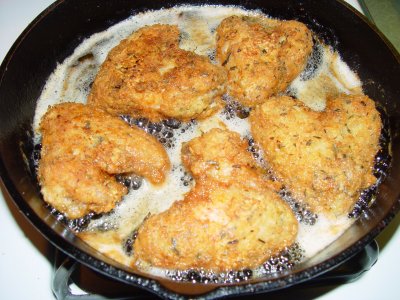
| Orthoprejudices | Paraprejudices | Isoprejudices |
| Back to Index | ||